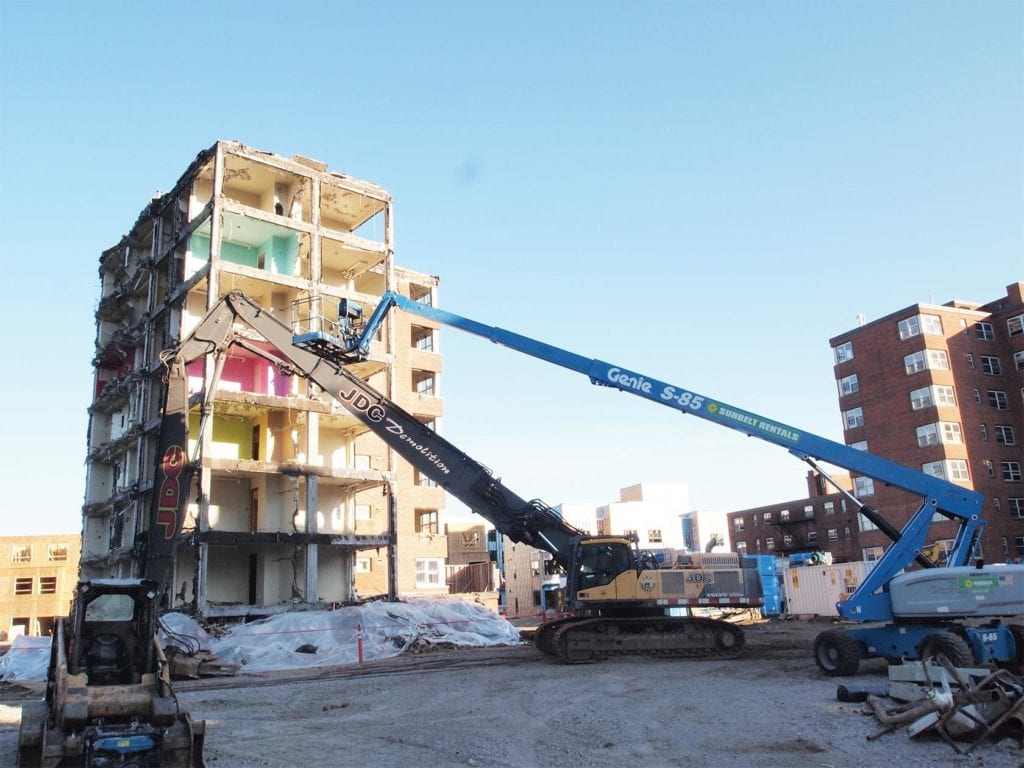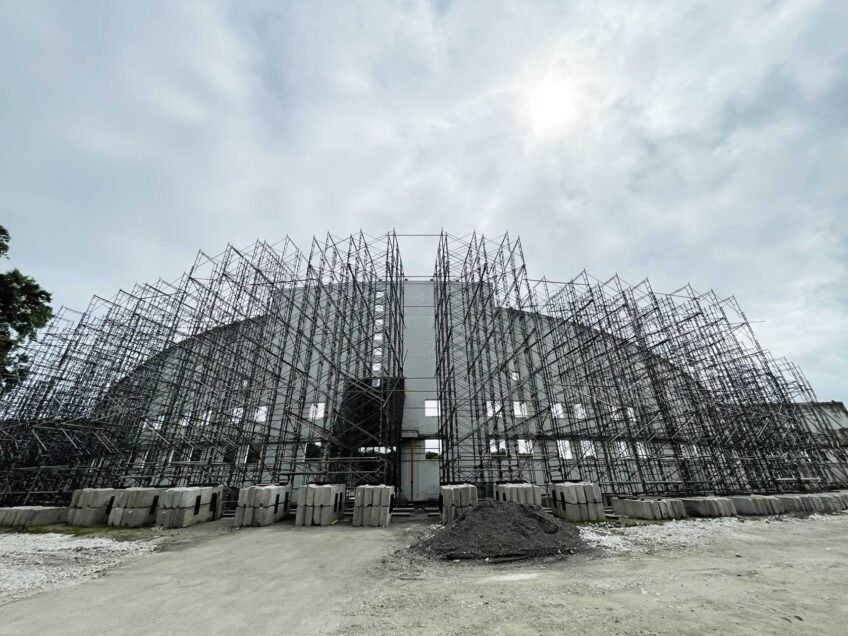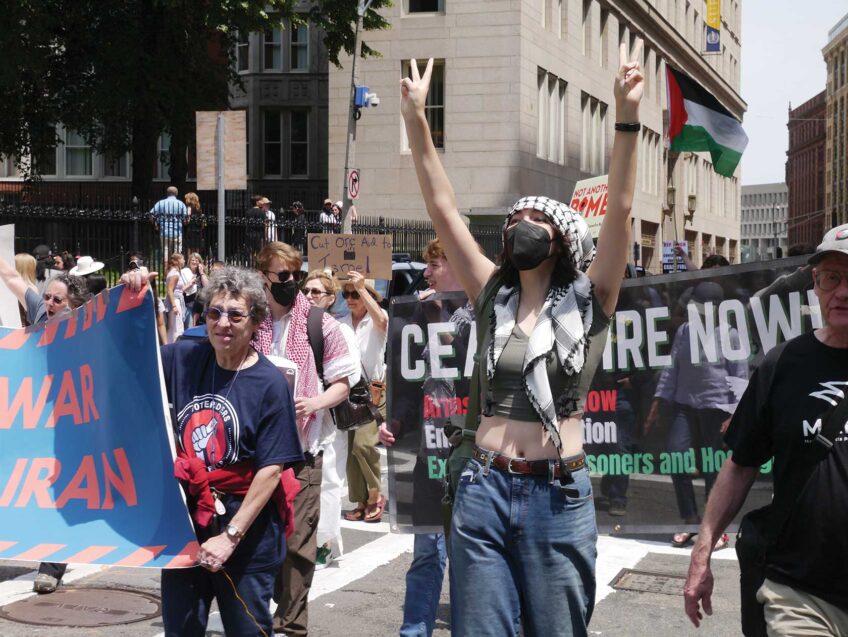Whittier Street housing redevelopment underway
Plan calls for 509 units in new, mixed-income complex

Since 1953, the red brick buildings of the Whittier Street public housing development towered over the corner of Tremont and Ruggles Street.
Over the decades, much changed around them: In the 1960s, homes and stores were leveled for the aborted extension of Interstate 95 through Roxbury. In the 1980s, the Orange Line was relocated to the Southwest Corridor with a new station at Ruggles Street. In the 1990s, the new Boston Police Department headquarters was built across the street.
This year, however, the Whittier Street development itself will see its biggest change yet as the Boston Housing Authority takes the wrecking ball to its familiar brick-faced towers. With the help of a $30 million HUD grant, the BHA is redeveloping the site into a mixed-income, residential and commercial development that will see all 200 existing affordable units in the complex relocated into brand-new four-story buildings, and the total number of units more than doubled.
“The buildings were old,” said outgoing BHA administrator Bill McGonagle. “They were falling apart. They weren’t going to last much longer.”
While the steel-reinforced concrete buildings appeared sturdy from the outside, failing elevators, aging electrical and plumbing systems and other components created a maintenance backlog. McGonagle said the development would likely have become uninhabitable within the next 10 to 15 years.
Compounding the problems in the Whittier development, HUD has slashed funding for public housing in recent decades, virtually eliminating funds for building maintenance. The BHA secured the $30 million in federal funds through the Obama-era HUD Choice Neighborhoods program, after competing with projects across the country for the funding.
The funding came through “literally in the closing days of the Obama administration,” McGonagle said.
“So to some degree, we were concerned that if we didn’t get the money before Obama left, we wouldn’t get it,” he added.
In the new mixed-income Whittier development, the nonprofit Preservation of Affordable Housing (POAH) and the Madison Park Community Development Corporation plan to build a total of 509 units — 210 deeply subsidized, 110 for households earning up to 60 percent of area median income, 72 for incomes between 60 and 80 percent of AMI and 117 at market rate. The total cost of the project is expected to be in excess of $1 billion.
The new development will feature high-rise buildings fronting Tremont Street scaling down to four-story buildings, which are currently under construction.
“It will be a brand new, architecturally beautiful mixed-income community that will ensure deeply affordable units for all the people who live there, as well as future generations,” McGonagle said. “I think it will be a tremendous asset to the Roxbury community.”
The reconstruction of the Whittier Street development comes as the adjacent Tremont Crossing project has received a long-awaited green light from the Boston Planning and Development Agency. That 1.2 million-square-foot project will bring 727 residential units, with 102 units designated affordable, along with 436,000 square feet of commercial and community space, including a new home for the Museum of the National Center for Afro American Artists.
At Whittier Street, current tenants have been relocated to other units during the construction.
The redevelopment of the Whittier Street project may be the last public housing construction funded by HUD for the foreseeable future, McGonagle said. The Trump administration has eliminated the HUD Choice program and made cuts to the HUD operating budget.
“Even the fiscally-conservative Republican House rejected the budget put forward by Trump and [HUD Secretary] Ben Carson,” he said.
In Boston, BHA officials have been pushing for preservation of their housing stock by seeking for-profit redevelopment, using existing BHA land for market-rate development that subsidizes renovation and maintenance of existing affordable units. In the BHA’s Bunker Hill housing development in Charlestown, the agency teamed up with Corcoran Jemison for a new 2,700-unit redevelopment that includes replacement of the 1,100 existing affordable units.
In the South End, the BHA transferred ownership of 126 units in 24 Victorian-era townhouses on West Newton and Rutland streets to Inquilinos Boricuas en Acción (IBA), a community development corporation. IBA will renovate the units and maintain them as affordable.
On the Whittier project, noted McGonagle, who is stepping down this year after 40 years at the agency, participation of workers of color has surpassed the Boston Jobs Residency requirement of 51 percent.
“As of June 30, 56 percent of working hours were by men and women of color,” he said. “I’m particularly proud of that statistic.”








